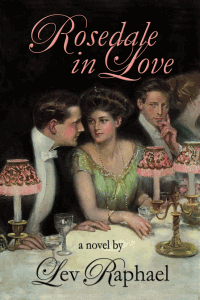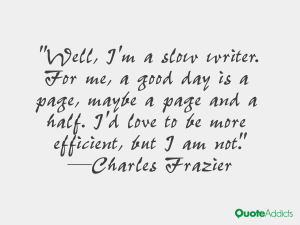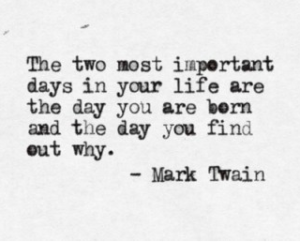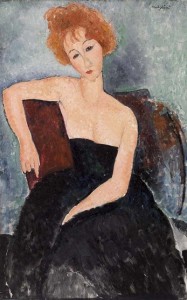It’s not surprising that I fell in love with Edith Wharton, given that I grew up in Gilded Age New York. The building on upper Broadway in Manhattan that I was raised in was one of two massive apartment blocks built circa 1900 by Harry Mulliken. Like Mulliken’s more elaborate Lucerne Hotel on 79th and Amsterdam, it had gorgeous tapestry brickwork and stone detailing,
The public library I visited every week was a Venetian palazzo designed by McKim, Mead, and White. This was a temple of books, a sanctuary, and a doorway to another more elegant world. Perhaps most enthralling for me as a young boy was our family’s regular bus route downtown that took us along Riverside Drive past one Gilded Age mansion, brownstone, and apartment building after another.
 The past was all around me as it might not be in other parts of New York City, and so discovering Wharton in college was like claiming part of my own history. I bought every single book of hers then available in Scribner paperbacks and read them many times, awed by her wit, her powers of description, and her sharp eye for hypocrisy and foolishness. In the summer of 1975 I read R.W. B. Lewis’s riveting Pulitzer-winning Wharton biography that helped launch the revival of her work, and through reading about Wharton’s life I felt even more inspired to pursue my own career as a writer.
The past was all around me as it might not be in other parts of New York City, and so discovering Wharton in college was like claiming part of my own history. I bought every single book of hers then available in Scribner paperbacks and read them many times, awed by her wit, her powers of description, and her sharp eye for hypocrisy and foolishness. In the summer of 1975 I read R.W. B. Lewis’s riveting Pulitzer-winning Wharton biography that helped launch the revival of her work, and through reading about Wharton’s life I felt even more inspired to pursue my own career as a writer.
That career of publishing twenty-five books in many genres has led me back to Wharton three times. In the early 90s I published a study of the emotion of shame in her writing and her life, something that had never been noticed or discussed before. A few years after Edith Wharton’s Prisoners of Shame, I invented two fictional Wharton societies and pitted them against each other in an academic mystery, The Edith Wharton Murders. It was my first book to be reviewed by the New York Times.
More recently, I’ve re-entered her world in a far more intimate way: I’ve radically re-visioned The House of Mirth from the point of view of Lily Bart’s Jewish suitor Simon Rosedale. I’ve given Rosedale a home, a family, a history, dreams, and a tormented heart. In writing Rosedale in Love, I haven’t tried to imitate Wharton’s style, but I have written the book in a period voice after two years of immersing myself in fiction and nonfiction from the early 1900s. I don’t know how Wharton would have felt about my novel, but for me, it’s been one of the most exhilarating collaborations of my career.
Lev Raphael is the author of 2g5 books in genres from memoir to mystery. He teaches creative writing online at writewithoutborders.com.






















